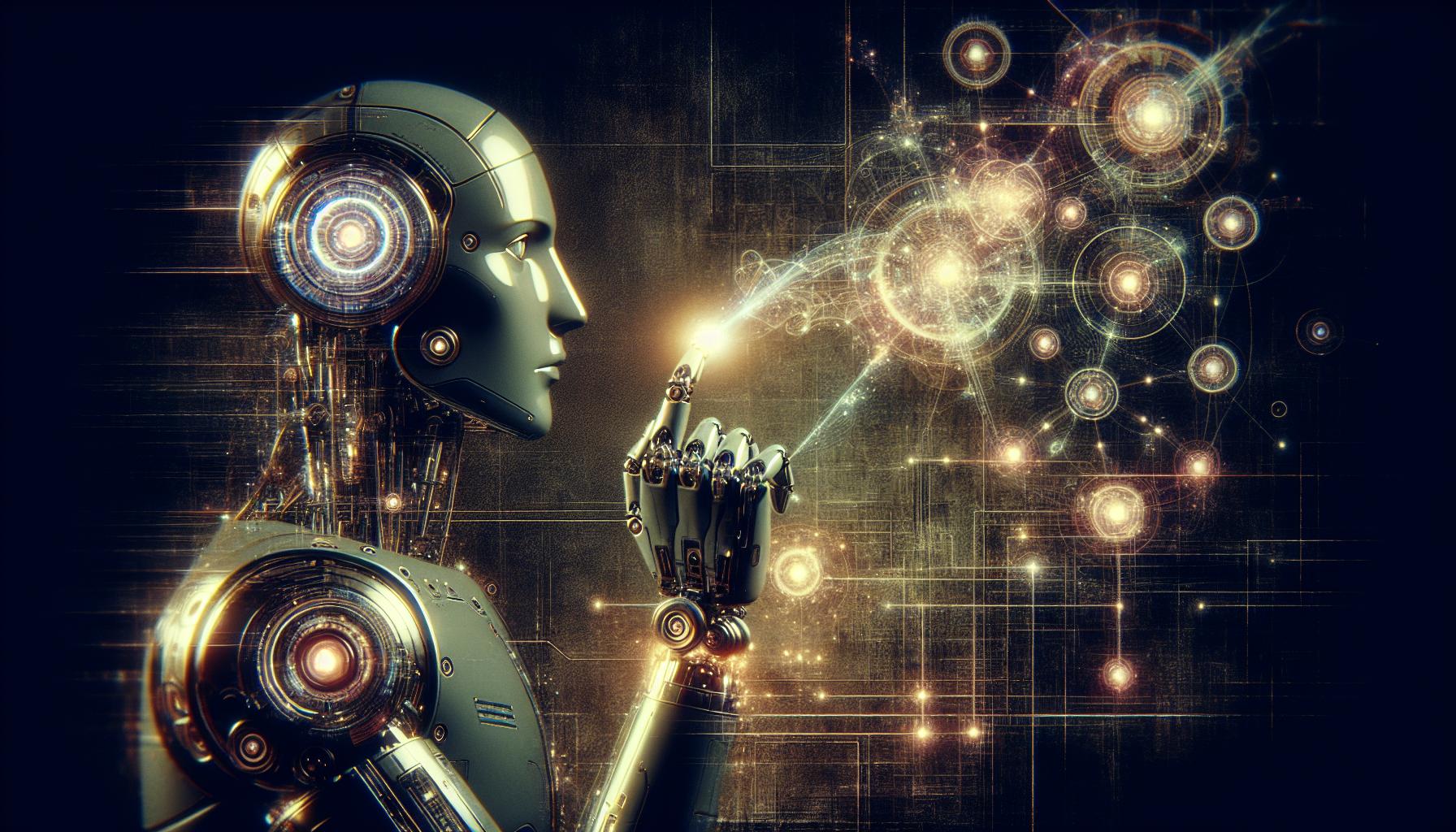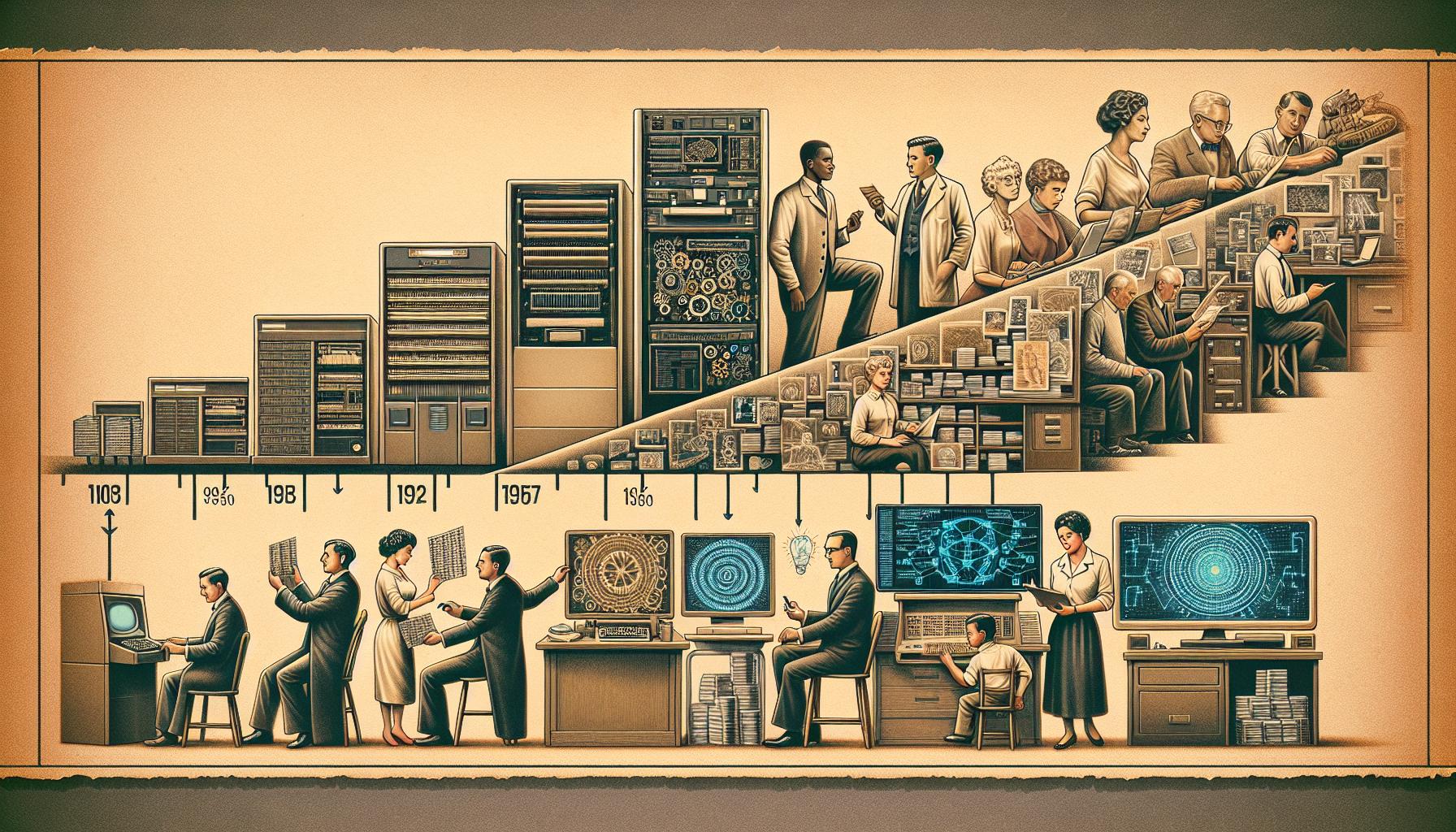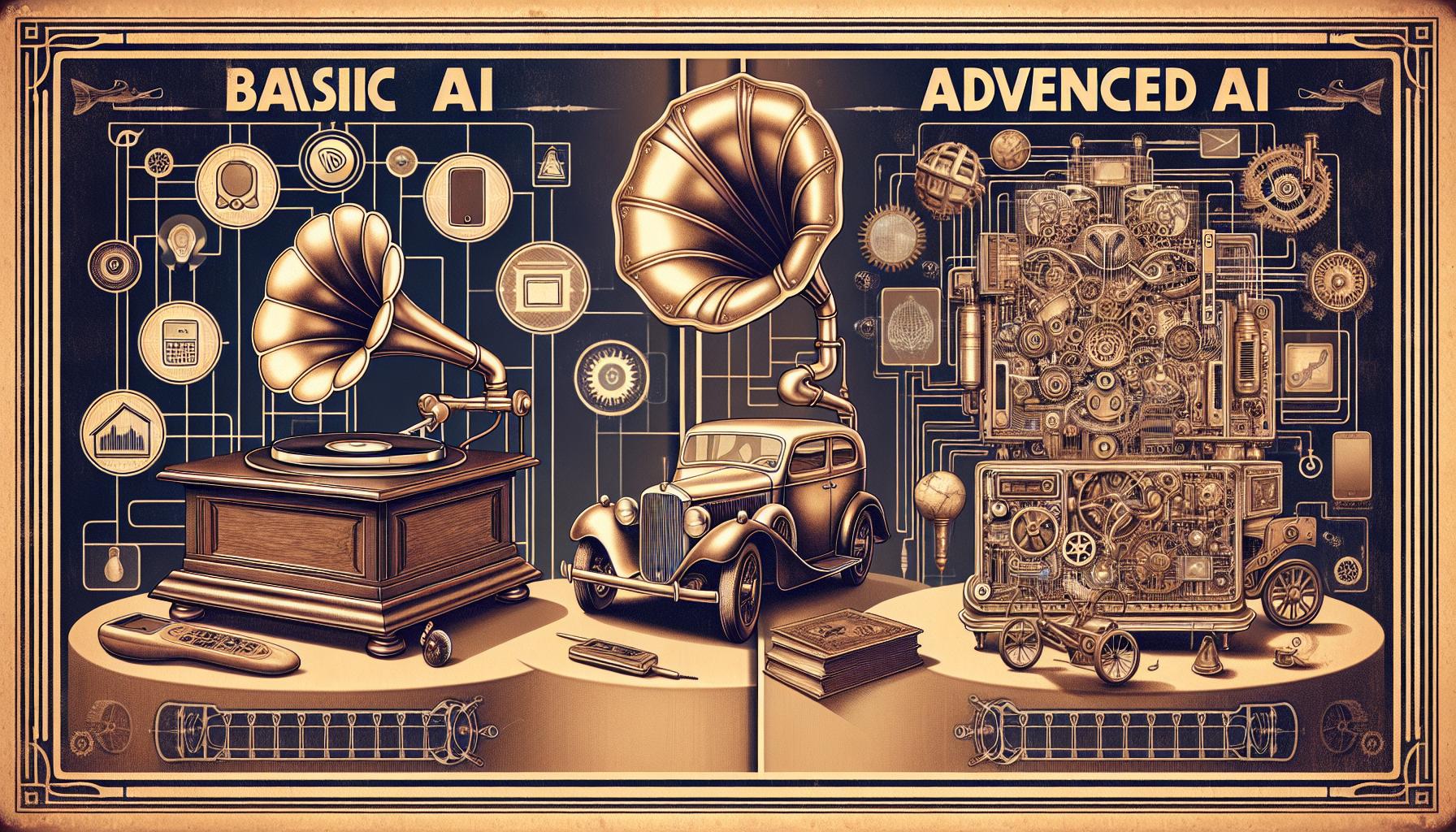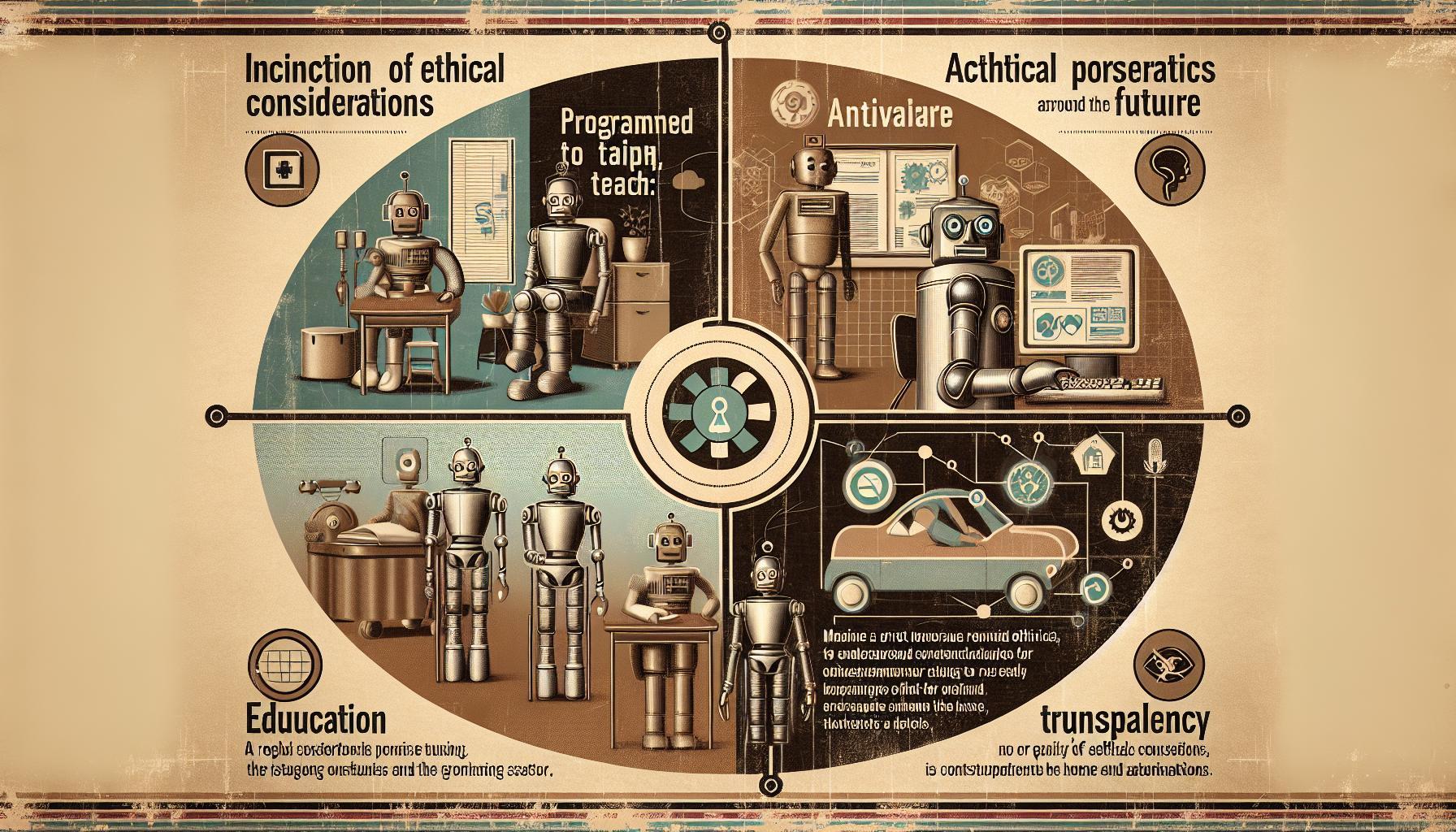You've likely heard the buzz about advanced AI. It's not just a tech industry fad. This technology is revolutionizing the way we live, work, and interact with the world around us. From self-driving cars to personalized recommendations on your favorite streaming service, AI is everywhere.
But what exactly is advanced AI? Well, it's a step beyond the basic AI technologies you're used to hearing about. It's about machines learning, reasoning, and even understanding human emotions. It's the future of technology, and it's happening right now.
So, are you ready to dive deep into the world of advanced AI? Let's explore what it is, how it works, and why it's such a game-changer in the tech industry. Buckle up, because we're about to embark on an exciting journey into the realm of advanced artificial intelligence.
What is Advanced AI?
Let's chop up the term "Advanced AI." It's an evolved version of what you know as traditional, basic AI. This isn't your run-of-the-mill type of artificial intelligence. Advanced AI takes technology to newer, unexplored heights.
Unlike basic AI, which entails programmed rules and responses, Advanced AI is about more than simple reasoning. It involves both learning and understanding - almost like a human brain. You're probably wondering, 'how is that possible?' Think about It this way. You learn from your experiences every day. Similarly, Advanced AI systems learn from data. They gather information, analyze it, draw potential scenarios and based on the analysis, take decisive actions.
The next big thing about Advanced AI is its ability to reason. That's right - it's not just about learning, it's also about applying that learning and making decisions. So, when an Advanced AI system encounters a situation, it doesn't just react. Instead, it considers the information it has, ponders the implications and then takes the best plausible action.
Take a moment to let that sink in. Machines reasoning like humans? Yes, that's Advanced AI for you.
But there's more. Advanced AI isn't only about learning and reason. Some of these systems now have the potential to understand human emotions. Imagine interacting with a machine that could read and understand your mood, feel your emotions and perhaps even empathize with you. Sounds like science fiction? Not anymore. That's the power of Advanced AI. It's revolutionizing the way we live, work, and interact with technology.
And guess what? This isn't some far-off futuristic concept. It's happening right now. Advanced AI is transforming industries and changing the world as we speak. It's not just the future of technology - it's the present.
Stay with us to the next part as we delve deeper into the nuances of how Advanced AI is shaping various aspects of human life and industries.
Understanding the Basics of AI

Before delving into the sphere of advanced AI, it's pivotal that you comprehend the basics first. Think of Artificial Intelligence (AI) as a computer technology that mimics certain aspects of human intelligence. Its simplistic form may carry out tasks such as recognizing patterns, understanding language, or making judgments.
However, the capabilities and potential of AI magnify tenfold when it starts learning by itself. This self-learning is called Machine Learning (ML), an integral part of AI. It's the machine's methodical way of increasing its accuracy without being explicitly programmed to do so. Have you ever wondered how Netflix accurately suggests movies that you'd love? Or how Amazon locks on to your product preferences? Maybe how Google magically predicts what you're going to search next?
Machine Learning is the secret ingredient.
Here's a brief overview of how Machine Learning functions:
- AI systems are fed huge amounts of data.
- Certain algorithms are then introduced.
- These algorithms learn patterns from the data.
- The AI system improves and customizes it based on the learned patterns.
The beauty of this process is that it's continuous, meaning the AI system is always learning and improving. No update or upgrade necessary from the back-end.
Deep Learning (DL) is another layer of complexity added to AI. It replicates the way a human brain works, using artificial neural networks to make informed decisions. Advanced AI utilizes these deep learning capabilities to its fullest, even enabling machines to grasp and understand human emotions.
As we proceed, it's important to realize that advanced AI is more than just a concept - it's a present-day reality radically changing how industries operate. You'll learn more about how AI is transforming our world as we journey deeper into this exciting realm.
The Evolution of AI Technologies

You've been following the remarkable story of AI. From its humble beginnings as a mere concept, AI has gone through some tremendous transformations over the years. Though it all may seem complex, let's break it down to better comprehend this exciting evolution.
First Generation AI: This era marked the birth of AI. Computers during this phase were rule-based systems, following a 'If X, then Y' logic. They could carry out simple tasks, solving problems based on the rules programmed into them. However, their functionality was limited, as they couldn't learn or adapt themselves based on new data.
Second Generation AI: The concept of Machine Learning (ML) was introduced. Instead of relying purely on pre-set rules, machines were now able to learn from data and improve themselves. They weren't just mimicking human intelligence, but were actually 'learning' and getting smarter.
Third Generation AI: This stage introduced Deep Learning (DL). Like an artificial version of the human brain, DL algorithms made it possible for machines to understand, interpret and even replicate human emotions. This not only made interactions with machines more human-like but also opened new paths in terms of applications.
Current AI: Today's AI doesn't just replicate human intelligence or emotions - it's shaping industries, defining trends and changing the world as we know it. It's affecting everything, from the smartphone you use, the car you drive to the way businesses are run.
As you journey through the evolution of AI technologies, it's clear that we've come a long way since the first generation AI. With rapid advancements and ongoing research in the field, one can only imagine what future AI holds. We're witnessing the dawn of an era where AI isn't just a tool, but an integral part to our everyday lives. With the potential to redefine boundaries, AI opens up a world of endless possibilities that we're only just beginning to explore.
The Difference between Basic and Advanced AI

To understand the concept of advanced AI, you first need to differentiate it from basic AI. Though each plays a fundamental role in shaping the future of technology, it's essential to note their key differences.
Basic AI, also known as Narrow AI, is designed to perform specific tasks. Whether it's apple's Siri answering your questions, or Amazon's Alexa playing your favorite music, basic AI operates within a limited context and can't surpass its programming.
Advanced AI, on the other hand, simulates human intelligence. It acknowledges the environment, deciphers information from its surroundings and learns with experience. This is also known as Artificial General Intelligence (AGI) or Strong AI. Advanced AI powers some of the most innovative technologies of today, like Google's driverless cars or IBM’s Watson.
To really see the difference, let's list down some key characteristics:
| Basis | Basic AI | Advanced AI |
|---|---|---|
| Purpose | Task-specific | Simulates human intelligence |
| Learning | No capability to learn from its environment | Learn from its surroundings and experiences |
| Evolution | Non-adaptive | Adapt and improvise with experience |
Hopefully, this helps you distinguish between the two forms of artificial intelligence. Understanding this difference is crucial to not only comprehend where we are presently but also to envision the impact of AI on future industries and interactions. So, the next time someone talks about AI advancements, you'll have a better grasp on what they're referring to and how it's shaping our world.
The Role of Machine Learning in Advanced AI
You've likely heard about machine learning (ML) and how it's heralded as the crux of future technological advancements. Machine learning is indeed key to advanced AI, presenting a mechanism that empowers systems to learn, adapt, and make decisions independently.
ML enables AI systems to learn from experience. Here's the thing: as these systems are exposed to new data, they adapt and adjust their algorithms accordingly. This iterative aspect sharply contrasts with the static programming of Narrow AI. With ML driving advanced AI, achievements like speech recognition or autonomous driving become a thrilling reality.
Seriously, what makes ML so important in advanced AI? Under the hood, it's the algorithm. The algorithm in ML is self-adjusting, allowing it to learn patterns and adjust its responses to optimize performance based on new data. This ability to learn empowers AI to make informed decisions, surpassing its initial programming.
What applications are there with advanced AI and ML, you ask? Take the healthcare industry. By utilizing advanced AI with ML, healthcare providers can predict patient outcomes more accurately, tailor treatment plans, and even anticipate disease patterns.
| Industry | Application of Advanced AI with ML |
|---|---|
| Healthcare | Accurate prediction of patient outcomes, personalized treatment plans, and predicting disease patterns |
Certainly, the picture becomes clearer. Machine Learning fuels advanced AI, enabling it to flex and strengthen capacities across a multitude of industries. Autonomous driving, personalized healthcare - it's just the tip of the iceberg. And we'll investigate further in the details as we dive deeper into the role and implications of ML in enhancing the capabilities of advanced AI.
Reasoning and Understanding in Advanced AI
Machine learning is quite brilliant at pattern recognition, but it's not the only mechanism advanced AI utilizes. Reasoning and understanding are critical facets in the AI ecosystem. Enabling machines to garner insights from their surroundings, draw logical inferences, and exhibit a semblance of human-like comprehension is an extraordinary leap in AI advancements.
Take Google's DeepMind, for instance. This AI program demonstrated the ability to learn, reason, and understand complex games like chess and Go. It was able to navigate intricate strategies and make intuitive leaps, elevation AI interaction from simple commands to strategic moves.
In the real world, this application is powerful. From optimizing logistics in a global supply chain, catching fraudulent transactions in real-time to providing personalized learning experiences for students, understanding and reasoning abilities of AI have far-reaching implications. It also plays an instrumental role in healthcare by helping doctors decipher complicated patterns in patient data to facilitate diagnosis.
Yet, teaching a machine to understand and reason is a daunting task. It involves processing immense datasets and emulating human-like thinking. For AI to truly comprehend context, "understanding must be considered as an iterative process", as opposed to a simple input-output feautre.
There lies the challenge — simplifying cognition to a format that can be taught and coded. AI needs to understand 'why' and 'how' on its own merit and not merely through programmed algorithms. Incorporating analogical reasoning and comprehension in code demands sophisticated machine learning models.
The goal is not only to transform AI into cognitive powerhouses but also to facilitate systems that can actually 'understand' and learn from the consequences of their actions. The future of AI lies in machines that not only learn but also comprehend, adapt, and improve their cognition based on experiences.
While these advancements paint a promising future of the AI landscape, the journey of mastering reasoning and understanding continues.
Human Emotion in AI Systems
Delving deeper into the complexity of AI, we get into the territory of emotions. Yes, you read right, emotions, a key part of the AI matrix. While teaching machines to learn and reason is pivotal, it's crucial to acknowledge the rising need for emotional intelligence in AI systems.
AI has come a long way, from merely performing logical operations to now having the ability to interpret human emotions. But why is human emotion important in AI, you may ask? Let's get straight to the point.
For example, in customer service, AI with emotional intelligence can drastically improve customer interactions. It's not just about the facts and figures that a customer service representative provides. It's noticeable when there's a lack of empathy or understanding, and that's exactly where AI with an empathy chip comes in.
In healthcare, doctors and therapists often have to read subtle emotional cues from their patients. Implementing emotionally intelligent AI could streamline this process, providing more accurate and effective healthcare solutions. Furthermore, the applications of emotionally intelligent AI are not limited to healthcare or customer service alone.
They reach far and wide across multiple industries, offering countless paths of innovation. In the education sector, emotion-aware AI could offer personalized learning experiences that can adjust to a student's mood and optimize learning outcomes.
Surely, cracking this emotional code isn't easy. Deep learning algorithms are employed to analyze facial expressions, tone of voice, or even physiological signals. The goal is to mirror human-like emotional understanding to offer a more genuine AI interaction. And while the strides have been significant, there's a long road ahead. So, keep your eyes peeled because the future of AI is not just smart, it's emotionally intelligent.
Real-world Applications of Advanced AI
The evolution of machine learning and reasoning capabilities in artificial intelligence has broadened AI's application spectrum in the real world. Your current understanding of AI largely extends beyond sci-fi fantasies. Today, you'll find examples of advanced AI in sectors as diverse as healthcare, education, and customer service.
When you imagine the healthcare sector, think about how artificial intelligence is revolutionizing it. Emotionally-aware AIs have entered the scene of mental health for patient assessment and treatments. In a medical clinic, the AI system can read patients' facial expressions, physiological signals, and voice tone. These systems aren't just cold, impersonal machines, but offer a more human approach to healthcare. This is achieved by sensitive responses toward patients, and personalized strategies can be implemented for treatment.
Deepening the exploration into the education sector, emotionally intelligent AI becomes increasingly influential. Through mood recognition abilities, AI systems can adjust the learning process flexibly responding to a student's emotional states. Giving emotion-based feedback can increase students' engagement, making learning more effective.
AI's real-world application is just as prevalent in the customer service industry. Emotion-aware AI can detect the client's sentiments during a conversation, improving the interaction quality. Imagine having products recommended to you by understanding your emotional state! That's AI technology moving from being simply transactional to building more authentic connections with customers.
It's not all smooth sailing, the implementation of emotionally intelligent AI in real world applications comes with challenges, primarily revolving around accurately interpreting human emotions. However, facing these hurdles is an exciting and essential part of AI's future development.
As you can see, the implications and potentials of advanced AI in real-world applications are boundless.
The Impact of Advanced AI on Industries
Advanced AI is not just about buzzing tech news. It's now making tangible impacts across various industries. For example, you can see its profound influence in sectors such as healthcare, education, and customer service.
Let's explore its impacts on these industries.
Healthcare
In the healthcare sector, advanced AI is paving its path towards a more empathetic approach. In essence, emotionally-aware AI systems are providing a more human touch. They can read patients' facial expressions, physiological signals, and voice intonation. Isn't it amazing how machines can now assess human emotions in such a nuanced manner?
Education
In turn, education isn't lagging behind in harnessing AI's potential. Emotionally intelligent AI adjusts learning processes based on a student's emotional states. By doing this, it's increasing engagement and yielding a more effective education. For teachers who are constantly on the lookout for ways to elevate their students' learning experiences, incorporating AI in their methodology is worth considering.
Customer Service
The customer service realm also benefits from emotion-aware AI. Such AI systems can detect a client's sentiments during a conversation. Consequently, they help improve the quality of interaction. Seamless and personalized customer experience is the future, and AI has a significant role in shaping that future.
Yet, despite AI's impressive capabilities, it needs to overcome barriers. Interpreting human emotions accurately is one challenge it must conquer. Even when human emotions are often too complex for machines to fully comprehend, the progress of AI development hints at a promising breakthrough.
The potential of advanced AI in real-world applications is vast, promising, and evolving. As it continues to progress and its accessibility increases, we'll witness even broader impacts across an array of industries. It's interesting to see how these advancements will shape the future.
Challenges and Considerations in Advanced AI
Implementing advanced AI in real-world applications is not without its challenges. Emotional intelligence in AI hinges on accurately interpreting human emotions—a factor where the complexity runs deep and wide. Not only are humans complex in emotion, but the way they express it varies wildly. From individual to individual and culture to culture, emotional expression is far from a one-size-fits-all model.
Your AI, however advanced it might be, faces the unenviable task of interpreting this emotionally loaded data. What's more, these expectations have to be met with the utmost sensitivity to avoid repercussions on consumers' sentiments. There's an intersection here of scientific precision and emotional acuity, a blend of tech and human understanding that asks for a lot from your AI system.
To add context to these challenges, consider the increasing expectation for ethical AI practices. The idea is to employ AI systems that are not only efficient but also value-sensitive, taking into consideration broader societal impacts. This includes fairness, inclusivity, transparency, and accountability.
To illustrate, consider the potential societal impact if an emotionally-aware AI negatively interprets someone's emotional state due to an error, leading to harmful consequences. Ensuring fairness and accuracy in AI's emotion detection remains a major challenge to overcome.
Here's a brief outline of the primary challenges:
- Accurately interpreting human emotions: a task that requires a fine understanding of diverse emotional expressions.
- Ethical considerations: delivering AI services that balance efficiency with ethical concerns, focusing on fairness, inclusivity, transparency, and accountability.
Data privacy also remains a central concern. As AI systems become more advanced, they're likely collecting increasing amounts of personal data. How to safeguard this information while still extracting necessary insights is a balance that needs to be constantly maintained.
So, whether it's interpreting complex emotional data, maintaining ethical practices, or safeguarding personal information, today's AI has plenty of challenges ahead on the path to tomorrow's success.
The Future of Advanced AI
Looking forward, advanced AI plays a crucial role in shaping diverse aspects of our society. You're part of an era where intelligent machines may soon predict, analyze, and understand human behavior in unprecedented ways.
Imagine a world where AI becomes integral to various industries. It's no new revelation that AI applications are vamping up medical diagnostics, delivering personalized learning experiences in education, and mainstreaming smart homes. In fact, the global AI market size is expected to hit a whopping $169.41 billion by 2025.
| Year | Global AI Market Size (In billion USD) |
|---|---|
| 2025 | 169.41 |
So, what can we anticipate?
As AI applications become commonplace, unprecedented advancements in hardware and leaps in computational abilities mean we're on the verge of witnessing AI that understands not just our spoken words, but our unspoken ones too. By mapping neural patterns and recognizing subtle shifts in body language, future AI could decipher complex human emotions to respond better to users' needs.
But it's not all about how advanced AI will transform us. It's also about how we can shape our AI future. Ethical considerations come to the forefront. As we inch closer to AI-rich societies, attention to data privacy becomes of paramount importance. We'll need robust guidelines to ensure that the use of personal data is always with explicit permission. Transparency, fairness, accountability - every AI construct must adhere to these values.
Emotionally intelligent AI and ethical AI aren't futuristic concepts anymore. We're building it. And with timely recognition of the challenges involved, a solution-centric approach, and an unwavering commitment to ethical considerations, we're enabling an AI future that’s bright, inclusive, and value-sensitive.
Conclusion
So, you've journeyed through the exciting landscape of advanced AI. You've seen how it's making waves in medical diagnostics, education, and smart homes. You've also grasped the impressive forecast of the global AI market, set to hit a staggering $169.41 billion by 2025. But it's not just about the numbers. It's about the ethical implications, the data privacy concerns, and the transparency issues that come with AI's prevalence. And it's about the future - a future where AI is not just smart but emotionally intelligent, capable of understanding complex human emotions. Remember, emotionally intelligent AI and ethical AI aren't just concepts for sci-fi movies. They're being built here and now, with a solution-centric approach and an unwavering commitment to ethics. Advanced AI is here, and it's reshaping our world.






